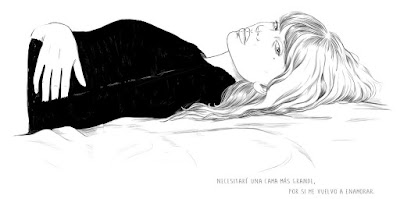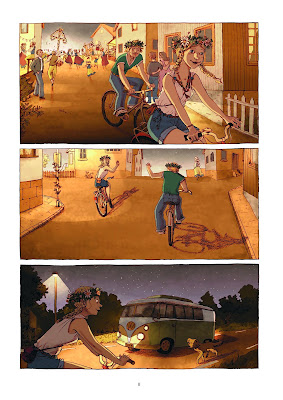In October, things perked up here. (Postponed from August) TEMUDAS fest, MASDANZA, concerts rescheduled from spring — some days we were really spoiled for choice. And the tickets were flying!
- 16 October: Flor de Canela @ Alameda de Colón, Las Palmas de Gran Canaria
By now, we’ve got used to cancellations: festivals, concerts, anything really. So imagine my surprise to discover that the second edition of the Rock & Books festival, organised by Biblioteca Insular de Gran Canaria was taking place bang in the heart of the city, from 15 to 25 of October! And for free entrance and even without customary pre-inscription — how cool is that?
So I couldn’t miss the chance to see my favourite Canarian band, this time with the artist Miss Mensi (Laura Castilla) who was painting “live” while Flor de Canela were playing. The programme was familiar — I watched streaming of their concert in Edificio Miller on 26 September — but you cannot compare that with live music. I liked their new(er), harder, funkier sound even more.
- 22 October: «Tributo al maestro: Paco de Lucía» @ Teatro Guiniguada, Plaza F. Mesa de León
Gautama del Campo (saxophones), Ezequiel Reina (guitar and vocal) and our very own Germán López (timple), with bailaora Rocío Pozo, paid their musical tribute to Paco de Lucía. Fantastic rendition of such themes as Canción de Amor, Zyryab, Gitanos Andaluces (bulerías), Río Ancho, Buana Buana King Kong and, of course, Entre dos aguas; plus Camaron’s La Leyenda del Tiempo — wish you were there.
- 24 October: Hirahi Afonso «Memento» @ Auditorio José Antonio Ramos, Parque Doramas
The new Musicando season was opened by Hirahi Afonso (timple) presenting his debut album Memento, with the band featuring Pau Figueres (guitars), Arnau Figueres (percussion), Darío Barroso (guitars), Ismael Alcina (bass) and Rita Payés (voice, trombone), plus guest musicians Belén Álvarez Doreste aka LAJALADA (voice), Claudio Marrero (sax) and Iván Quintana (voice).
With more events coming in November, it’s a shame that I won’t see them. I’m off from Las Palmas for a couple of months to the gloomy mainland.






















